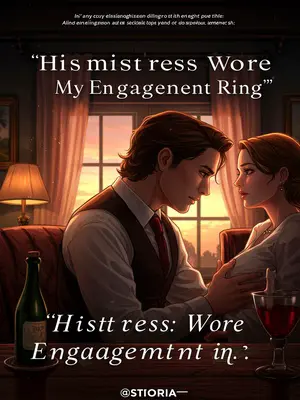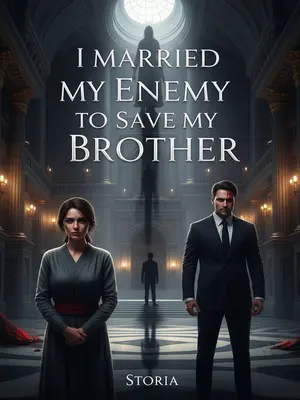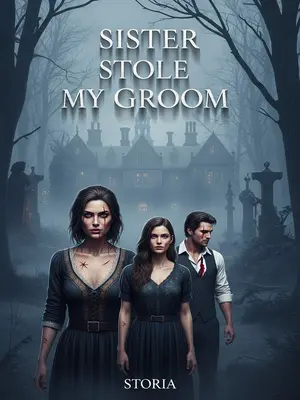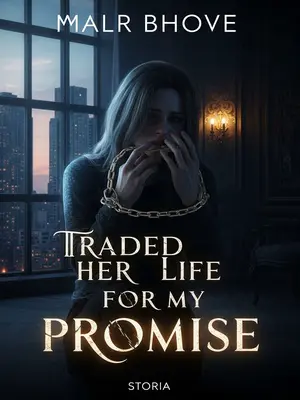Chapter 1: Wallflowers and Southern Chess Moves
My fiancé fell for a shy little thing down in Savannah.
That phrase kept tumbling around in my head, part bitter, part almost amused. Down here in the South, we’ve got a hundred ways to call a girl pretty, but ‘wallflower’—that one hangs on, kind of word that sticks—soft, but with a bite. I could already see her in my mind: quiet, maybe, but with something about her that drew you in. Funny how that works, isn’t it?
But my mother, ever the strategist, told me, “Why not bring her into our home? Men are always gonna let their eyes wander, honey. If you can get on the good side of the one he’s sweet on, you’ll save yourself a world of trouble.”
Mom had this knack for making even the wildest ideas sound as ordinary as bringing an extra pie to Sunday supper. She’d say it like it was nothing, and then pause—her voice easy, but her eyes already calculating, two steps ahead. Sometimes, I’d catch a flicker of her mind working, every kindness a chess move. She expected me to play smart, too.
So on the day that quiet little wallflower was about to do the unthinkable—sell herself just to bury her mama—I beat Carter Ellison to the street corner and said, “Miss, would you come with me?”
I remember the heat burning through the soles of my shoes, the Savannah air thick as syrup, so heavy you could almost drink it. A crowd was gathered, all eyes on that girl—Lily Ramirez, I’d heard. She looked up at me, startled, trying to figure out what on earth I was offering. Everything was so still, it felt like church right before the preacher starts the first hymn—quiet, expectant.
I first heard about Carter Ellison’s girl in Savannah from one of the Ellison housekeepers. For a second, I couldn’t decide which was more surprising: that my fiancé had found someone else, or that my mother actually had someone feeding her news from inside the Ellison home. That’s the South for you.
I always thought our world was small, but the grapevine among old Southern families is even smaller. I could just picture the housekeeper, flour dusting her apron, whispering secrets over the kitchen sink while the biscuits baked. It unsettled me, how easily Mom seemed to pull strings behind the scenes—like she was running the whole show from the back row.
After turning it over in my mind for a good long while, I finally said, “Mom, that’s the Ellison family’s business. We shouldn’t meddle there.” Even as I said it, I felt a flutter of nerves in my stomach.
I tried to sound grown, like the kind of woman who could plant her boots and not budge. But Mom just smiled, that knowing smile she wore whenever she could already see the outcome. Those old Southern rules—duty, family, reputation—pulled at me, all those invisible threads winding around my heart.
Mom took a slow sip of coffee, then sighed, glancing my way. “Time’s a sneaky thing, sugar. Before you know it, you’re grown—grown enough to leave your mama, start your own family. Grown enough that there are things I need to teach you.” Her words were gentle, but they settled on me like a heavy quilt.
She said it soft, but I felt the weight. She wore her pearls even at breakfast, the strand catching sunlight. I watched her hands—steady and graceful, hands that could slice a pie or sign a check like it was nothing. For the first time, I realized just how much she’d given up to keep our world spinning the way it did. I had to pause, just to take that in.
She took my hand. Her face was solemn. “Since you were little, I hired the best teachers—manners, character, how to run a house. I never worried about that. You’ve got a good foundation. But no matter how upright you are, living in this world, you gotta learn a few tricks. Like how I got someone inside the Ellison house early on. Like how you should handle this Lily Ramirez. I never taught you these things before, afraid you’d pick up bad habits or lose your good heart. But next year, you’ll marry into the Ellison family. A woman can’t get by on virtue alone. I know you’re principled. Go think it over. Come back to me when you’ve figured it out.”
Her hand was cool and dry, her grip gentle but didn’t let go. I remembered all those childhood lessons in the parlor, the way she’d tap my shoulder to fix my posture. Now, her voice was softer, but the lesson was harder. Life outside our home wasn’t as simple as tea parties and piano recitals. Not by a long shot.
Just like Mom said, she raised me to be upright and kind. For her to suddenly talk about these things—it left me reeling. But one thing I never doubted: Mom wanted nothing more than for me to have a good life. That much was always true.
I sat up late in my room, window cracked for the night breeze. The cicadas sang their hearts out, and I tried to imagine the kind of woman I wanted to be. Could I be a schemer? Or would I just end up someone’s fool? Mom’s love was fierce, and sometimes that meant learning to fight my own battles. I felt that deep in my bones.
I thought all night, tossing and turning. The next morning, I went to greet her, same as always, and asked, “Mom, how should I handle that girl?”
I caught the smell of coffee brewing, warm and familiar, settling my nerves. My voice sounded steadier than I felt. I watched Mom’s face, searching for any flicker of disappointment. But she just smiled, a little relief lighting up her eyes. Like she’d been waiting for me to finally step across that line.
She smiled with real relief and asked, “Now that you know Carter Ellison cares for someone else, does it… hurt, honey?”
That question caught me off guard. I hesitated, my hand gripping the back of the kitchen chair. I realized, a little embarrassed, that it did sting—even if just for a heartbeat. The kind of pain you pretend not to feel, hoping no one notices.
Yesterday’s lesson from her had thrown me so much, I’d forgotten for a moment—I really had been hurt, even if only for a second.
I looked away, cheeks burning with the rush of feeling. It was easier to focus on the sunlight slanting across the floor, the hum of the fridge, anything but the ache in my chest. Still, Mom was right. Some wounds you don’t notice till someone points them out.
With Carter Ellison and me, everything was by the book—an arranged engagement, families playing matchmaker. Before the engagement, we’d met once, quick and formal, at a garden party at a friend’s estate. He was handsome, son of a local judge; I was in my prime, daughter of a respected professor. Nothing to object to, so that was good enough for everyone. After that, came all the dinners and introductions. He went south to study, and our folks agreed we’d marry in three years.
I remember that garden party—the sun coming through the oaks, lemonade tart on my tongue. Carter shook my hand, polite as could be, his eyes never lingering too long. We were two puzzle pieces put side by side, not quite fitting, but close enough for everyone else. Afterward, I pressed the flowers from that day in my diary, not sure what else to do with the memory.
Over the past two years, whenever my birthday or a holiday rolled around, he’d send back little gifts—a silver bracelet, a locket, a nice fountain pen. Folks say young women dream of romance. Even with all the rules, I’d sometimes think of his face in the quiet of night, though the memory was always a little blurry, a little distant.
The gifts were always tasteful, never too personal. I’d line them up on my dresser, each one a quiet reminder of the future waiting for me. Sometimes, late at night, I’d imagine him writing the cards himself, but deep down I figured it was his mother’s handwriting. Still, I kept them—proof that someone, somewhere, was thinking of me.
I guess I really was heartbroken.
It was a quiet kind of heartbreak, the kind that sits in your chest and makes everything feel a little colder. I tried to tell myself it didn’t matter, but the ache stuck around anyway, like the taste of something bittersweet that won’t quite fade.
I didn’t answer, but Mom read it on my face. She spoke gently, “I don’t know which hurts more—to spend two years married, only for him to want someone else, or to lose hope in men before you even marry. But as women, we can’t dodge this. Look at all the old families in Charleston—who doesn’t have a side piece or two?”
Her words settled heavy in the room, laced with a kind of tired wisdom. I wondered if she was thinking about my dad, or maybe someone else she’d known. There was a softness in her voice, a sadness that made me want to reach out and squeeze her hand, just for a second.
I thought of the way Dad sometimes worked late, the whispered calls that stopped when I came in. I wanted to ask her more, but the words stuck in my throat. Some things between mothers and daughters are better left unspoken.
I wanted to comfort her, but she waved me off. “If a man’s set on chasing someone new, what’s the point in fighting tooth and nail with the other women? Let ‘em fight, if they want. If you win over a few, they’ll handle the mess for you. Since Carter’s taken with this Lily Ramirez, bring her home. Treat her kindly, make her an ally. When you marry, let her be part of your household. Later, if he chases someone else, let Lily deal with the fuss. You just focus on raising your kids and keeping your house—that’s the smart way.”
She said it with a shrug, like it was the simplest thing. I tried to imagine sharing my life with another woman—a living, breathing reminder of what I’d lost, or maybe what I never really had. Still, there was a twisted sense to Mom’s advice. Maybe that was the only way to keep your heart safe when nothing stays the same.













